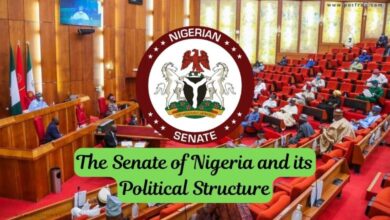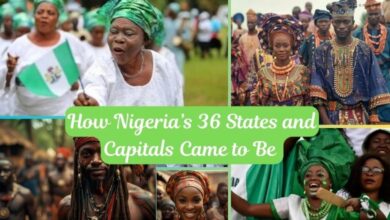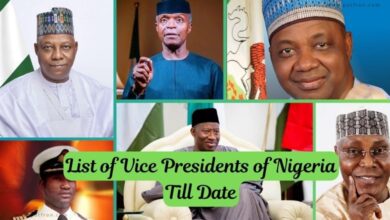An Overview of Nigeria Political System
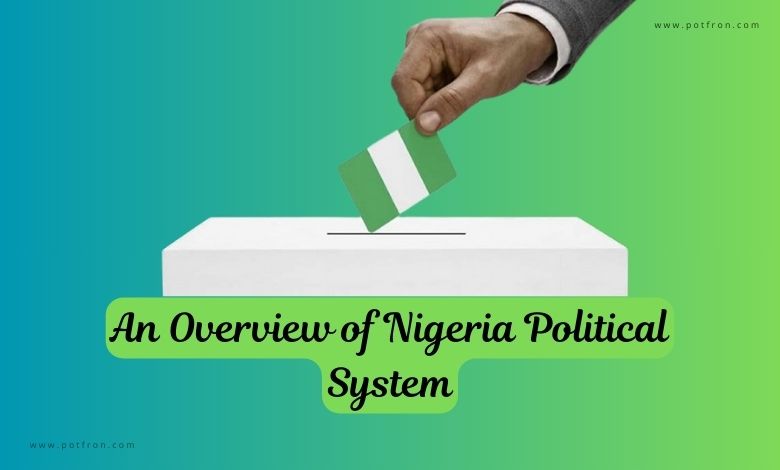
Nigeria Political System is a federal system and it is a form of representative democracy where the country is divided into various states, each with its own government, and power is shared between the national (federal) government and the state governments. This system is based on the principles of federalism, separation of powers, and constitutional governance.
Nigeria Federal System
nigeria government structure operates under a federal system of government, which means power is divided between the national (federal) government and 36 states, alongside the Federal Capital Territory (FCT), Abuja. This structure is designed to accommodate the country’s extensive ethnic diversity, comprising over 250 ethnic groups, with the three largest being the Yoruba, Hausa-Fulani, and Igbo.
Each state has its own government, headed by an elected governor, and enjoys a degree of autonomy. States are further divided into Local Government Areas (LGAs), bringing governance closer to the grassroots level. The federal system aims to balance the distribution of power.
Related: Nigeria National Anthem and Its Frequently Asked Questions
Also read: Nigeria Postal Codes and Zip Codes Complete list
Governmental Framework
Nigeria’s governmental framework is based on the 1999 Constitution, which outlines the separation of powers among the executive, legislative, and judicial branches.
- Executive power is vested in the president, who is the chief of state and head of government.
- The president is eligible for two four-year terms.
- The president’s Federal Executive Council, includes representatives from all 36 states.
- The National Assembly, consisting of a 109-member Senate and a 360-member House of Representatives, constitutes the country’s legislative branch.
- Three senators represent each of Nigeria’s 36 states, and one additional senator represents the capital city of Abuja.
- Seats in the House of Representatives are allocated according to population. Therefore, the number of House members from each state differs.
- Members of the National Assembly are elected to a maximum of two four-year terms.
- The judicial branch comprises the Supreme Court, the Court of Appeal, the Federal High Court, and, on the state level, high courts, sharia courts, and customary courts. The president appoints members of the Supreme Court, subject to confirmation by the Senate.
1. Executive Branch:
- President: The President of Nigeria is both the head of state and the head of government. Elected for a four-year term with the possibility of re-election for one additional term, the President wields significant authority, including the power to appoint ministers and other key officials, subject to legislative approval.
- Federal Executive Council: This body, comprising the President, Vice President, and ministers, is responsible for the execution and administration of government policies.
Presidency
Nigeria’s presidency comprises several key offices, each with specific roles and responsibilities
Office of the President
Femi Gbajabiamila, is the Chief of Staff to President Bola Ahmed Tinubu. He assumed the role of Chief of Staff to the President on June 14, 2023, after resigning as a member of the 10th House of Representatives, where he represented Surulere 1 Federal Constituency in Lagos State.
- The President of Nigeria is both the ceremonial head of state and the head of government. This dual role places the President at the pinnacle of Nigeria’s political hierarchy.
- The President exercises executive powers, including the implementation and enforcement of laws, management of national affairs, and oversight of the federal bureaucracy.
- The President serves as the Commander-in-Chief of the Armed Forces, overseeing the military and ensuring national security.
- The President sets the national policy agenda and proposes legislation to the National Assembly.
- The President appoints federal ministers, judges, and heads of various governmental agencies and parastatals, often with the approval of the Senate.
Related: List of Nigeria Past Presidents
Office of the Vice President
The Office of the Vice President (OVP) is overseen by the Deputy Chief of Staff to the President, Office of the Vice President. The current occupant of that position is Sen. Ibrahim Hassan Hadejia, a former Deputy Governor ofJigawa State.
- The Vice President is the second-highest executive officer, ready to assume the presidency if the incumbent is unable to serve.
- The Vice President advises the President on various issues and often represents the President in domestic and international affairs.
- Typically chairs the National Economic Council, which coordinates economic planning and policy implementation across federal and state governments.
- The Vice President may be tasked with specific policy areas or initiatives, depending on the President’s discretion.
Office of the Secretary to the Government of the Federation (SDF)
The Office of the Secretary to the Government of the Federation monitors and coordinates the implementation of government policies and programmes; serves as the frontline advisory institution of the Presidency; drives policy formulation, harmonization, and implementation; and monitors Federal Ministries, Departmentsand Agencies.
- The SDF coordinates the activities of ministries, departments, and agencies to ensure effective governance.
- Manages the operations of the Federal Executive Council (FEC), including setting agendas and preparing documentation for meetings.
- Ensures that government policies and decisions are implemented efficiently across various sectors.
- Provides advice to the President on administrative and governance matters.
Office of the Head of Civil Service to the Federation
The Office of the Head of the Civil Service of the Federation (OHCSF) is responsible for the leadership, management and capacity development of the Federal Civil Service, which is the engine of governance and the administrative machinery for implementing the federal government’s policies and programmes.
Office of the National Security Adviser (ONSA)
The Office of the National Security Adviser is responsible for the leadership, management and capacity development of the security architecture of the Country.
- The National Security Adviser (NSA) is responsible for advising the President on security matters and coordinating security and intelligence efforts among various agencies.
- Develops national security policies and strategies to address internal and external threats.
Statehouse Administration
- Oversees the day-to-day operations and maintenance of the Presidential Villa (State House) in Abuja, including administrative and support services.
- Manages protocol services, including the organization of official events, receptions, and state functions.
- Provides logistical and administrative support to the President, Vice President, and their respective offices.
- Handles communication between the Presidency and the public, including media relations and dissemination of official information.
2. Legislative Branch:
- National Assembly: Nigeria’s bicameral legislature consists of the Senate and the House of Representatives. The Senate of Nigeria has 109 members, three from each state and one from the FCT, while the House of Representatives has 360 members apportioned based on population.
- The National Assembly is tasked with making laws, scrutinizing the executive branch, and representing the interests of the electorate.
3. Judicial Branch:
- Supreme Court: As the highest court, the Supreme Court of Nigeria has final appellate jurisdiction.
- Lower Courts: These include the Court of Appeal, Federal High Court, and various state courts. The judiciary interprets laws, ensuring they align with the Constitution, and provides a check on legislative and executive actions.
Political Parties and Electoral Process
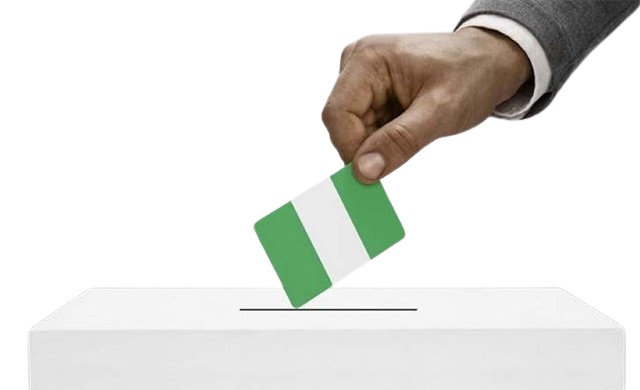
Nigeria’s political system is dominated by a multi-party system, although two parties have emerged as the primary contenders: the All Progressives Congress (APC) and the People’s Democratic Party (PDP).
1. All Progressives Congress (APC): it was formed in 2013 through a merger of several opposition parties, the APC has positioned itself as a center-right party, advocating for market-oriented economic policies and anti-corruption measures.
2. People’s Democratic Party (PDP): it was founded in 1998 and is a center-left party that promotes social democratic policies, emphasizing social welfare and economic intervention.
3. Other Parties: includes Labour Party (LP), All Progressives Grand Alliance (APGA), New Nigeria People’s Party (NNPP), Social Democratic Party (SDP) and many more
Electoral Process
Elections in Nigeria are conducted by the Independent National Electoral Commission (INEC). INEC is responsible for overseeing federal and state elections, ensuring they are free, fair, and credible. Elections are held every four years for the presidency, National Assembly, governorships, and state houses of assembly.
